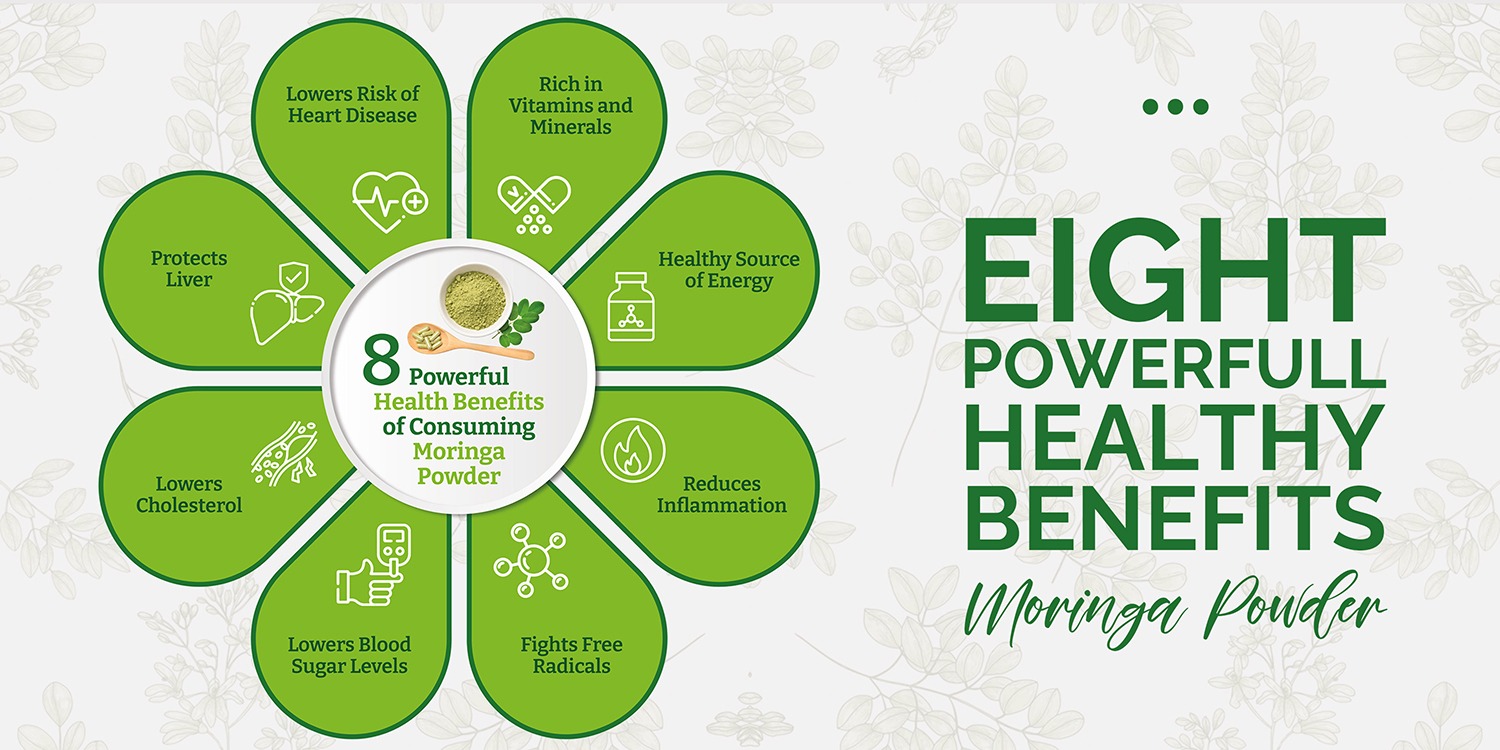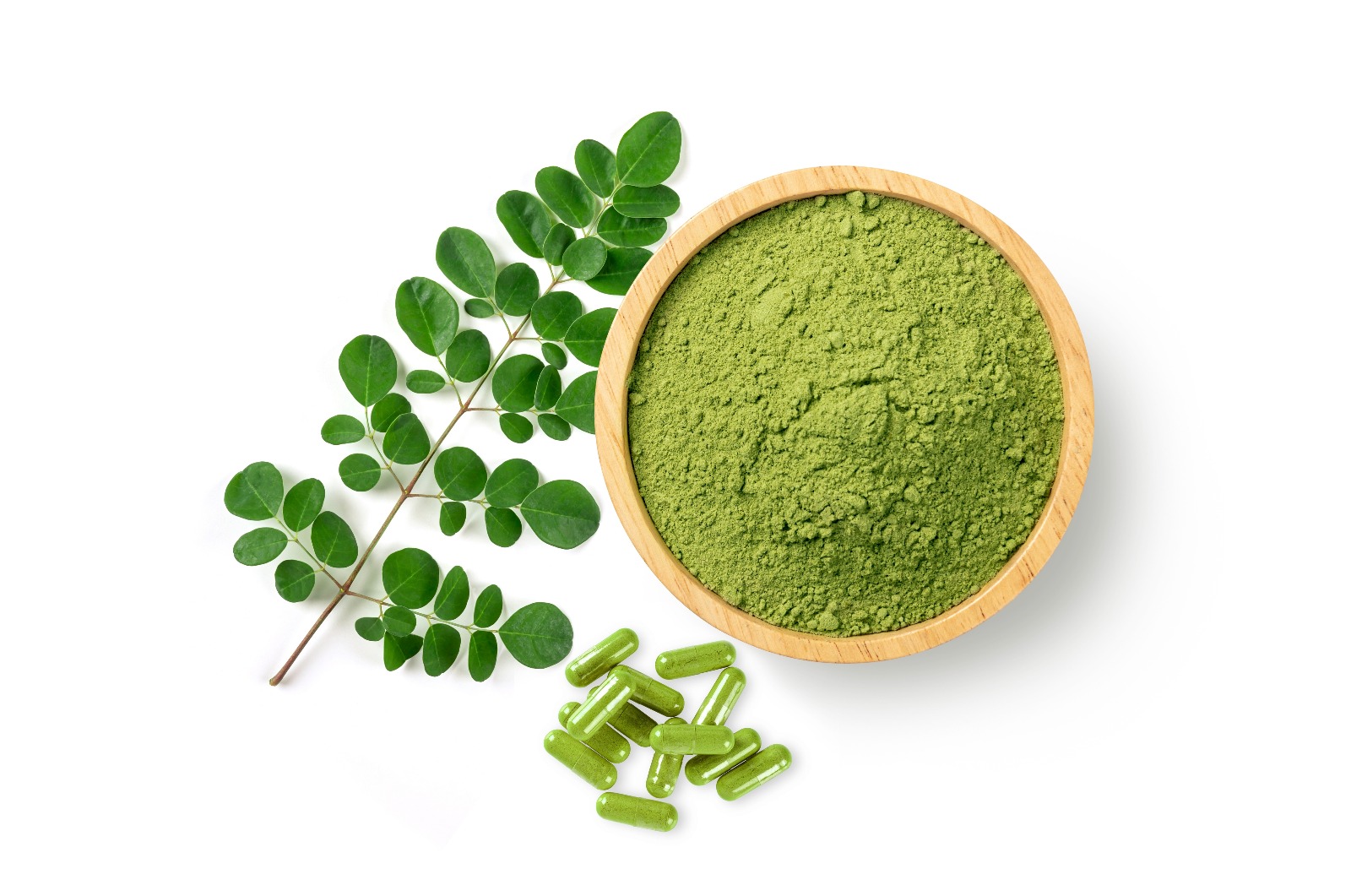Moringa Side Effects: What You Need to Know
Moringa, the rising star of natural remedies, has captured the attention of health enthusiasts worldwide. Touted as a superfood with numerous nutritional benefits, it offers promises of improved immunity, reduced inflammation, and better digestion. However, before hopping on the Moringa bandwagon, it’s crucial to understand its potential side effects. In this article, we’ll explore the world of Moringa side effects and equip you with essential knowledge for a safe journey with this green gem. From its rich history in traditional medicinal practices to its modern popularity, we’ll uncover the potential advantages of Moringa. But we won’t shy away from discussing the potential drawbacks, including allergic reactions and digestive discomfort.
With a focus on responsible usage, recommended dosages, and interactions with medications, we aim to empower you to make informed decisions about incorporating Moringa into your health routine. So, join us on this green adventure to uncover the truth about Moringa and its impact on our well-being.
What is Moringa?
Moringa, a fascinating plant with a long and storied history, originates from the Moringa oleifera tree, also known as the “Miracle Tree” or “Tree of Life.”
Although its popularity as a superfood has surged in recent times, Moringa’s roots can be traced back to ancient civilizations that revered it for its medicinal properties.
Native to regions like India, Southeast Asia, and parts of Africa, Moringa has been an integral part of traditional medicine in these cultures for centuries. The plant’s various parts, including the leaves, seeds, and roots, have been used to treat an array of ailments, earning it a reputation as a potent natural remedy.
One of the primary reasons for Moringa’s increasing global recognition is its exceptional nutrient profile. The leaves, in particular, are rich in essential vitamins like vitamin A, vitamin C, vitamin E, and minerals such as calcium, iron, and potassium. Additionally, Moringa is a powerhouse of antioxidants, which play a crucial role in neutralizing harmful free radicals in the body.
Moreover, Moringa is highly regarded for its potential to combat malnutrition, especially in regions where food resources are limited. The plant’s leaves offer a valuable source of vital nutrients, making it an invaluable asset in the fight against hunger and undernutrition.
Beyond its nutritional benefits, Moringa’s versatility is truly impressive. Almost every part of the tree finds use in various applications. The seeds, for instance, can be processed into Moringa oil, which is sought after for its skincare and haircare properties. The seeds can also be used to purify water due to their natural coagulant properties.
With an array of potential benefits and a nutritional profile that rivals many conventional vegetables and fruits, Moringa has earned its status as a superfood. This popularity has resulted in Moringa supplements and products flooding the market, catering to health-conscious consumers looking to harness the plant’s goodness.
However, as with any powerful natural remedy, it’s important to approach Moringa with informed caution. While it boasts numerous health advantages, it is essential to understand that not everyone may experience the same benefits, and some individuals may encounter side effects.
In the following sections of this article, we will take a deeper dive into both the positive health effects attributed to Moringa and the potential side effects that necessitate careful consideration. By understanding the complete picture, you can make informed decisions about whether Moringa is the right addition to your health and wellness journey. Remember, a balanced approach and consultation with a healthcare professional can help you navigate the world of Moringa effectively and safely.

Positive Health Effects of Moringa
Moringa’s reputation as a superfood is well-deserved, thanks to its impressive array of positive health effects. Backed by scientific research and traditional wisdom, this leafy green has garnered attention for its potential to promote overall well-being.
- Boosted Immunity: One of the key advantages of incorporating Moringa into your diet is its immune-boosting properties. Packed with immune-supporting nutrients like vitamin C, beta-carotene, and antioxidants, Moringa may help strengthen your body’s defense against infections and illnesses.
- Reduced Inflammation: Inflammation is at the root of many chronic health conditions. Moringa contains powerful anti-inflammatory compounds, such as quercetin and chlorogenic acid, which may help alleviate inflammation and its associated symptoms.
- Enhanced Digestion: For those struggling with digestive issues, Moringa may come to the rescue. Its fiber content can aid in promoting healthy digestion and relieving constipation. Additionally, Moringa possesses compounds that can combat harmful gut bacteria, fostering a balanced gut microbiome.
- Regulated Blood Sugar Levels: Moringa has shown potential in helping regulate blood sugar levels, making it a valuable addition to the diet for individuals managing diabetes or those at risk of developing the condition. Research suggests that Moringa may improve insulin sensitivity and reduce blood sugar spikes after meals.
- Antioxidant Protection: Antioxidants play a critical role in neutralizing free radicals, which are harmful molecules that can damage cells and contribute to various diseases. Moringa’s abundance of antioxidants, including flavonoids and polyphenols, may provide substantial protection against oxidative stress.
- Nutrient Powerhouse: Moringa’s nutrient density is unparalleled, making it an excellent source of essential vitamins and minerals. Its high iron content is particularly beneficial for individuals at risk of iron deficiency anemia, such as pregnant women and vegetarians.
- Potential Cancer-Fighting Properties: While more research is needed, some studies have indicated that Moringa may have anticancer effects due to its ability to inhibit the growth of cancer cells and reduce tumor size. However, it’s essential to approach this aspect with caution, as more studies are necessary to confirm these findings.
- Cardiovascular Health Support: Certain compounds found in Moringa, such as isothiocyanates, may aid in lowering cholesterol levels, which can contribute to better heart health. By promoting healthy cholesterol levels and reducing oxidative stress, Moringa may offer support to the cardiovascular system.
It’s important to note that while the positive health effects of Moringa are promising, they may not be experienced by everyone in the same way. Individual responses can vary based on factors such as age, overall health, and lifestyle choices. Before making any significant changes to your diet or supplement regimen, consulting with a healthcare professional can provide personalized insights and ensure that Moringa is a safe and beneficial addition to your wellness routine.

Moringa Side Effects
While Moringa offers a host of health benefits, it’s essential to be aware that like any supplement or natural remedy, it may come with potential side effects.
Though generally considered safe for most people when used appropriately, some individuals may experience adverse reactions.
Here, we explore the possible side effects of Moringa consumption that demand attention and careful consideration.
- Digestive Discomfort: Some individuals may encounter mild digestive issues, such as stomach upset, bloating, or diarrhea, after consuming Moringa products. This discomfort could be due to the plant’s high fiber content, which, in excess, may temporarily overwhelm sensitive digestive systems.
- Allergic Reactions: While rare, allergic reactions to Moringa have been reported. Those with allergies to other plants in the same family, such as mustard, may be at a higher risk. Symptoms of an allergic reaction may include skin rashes, itching, swelling, or difficulty breathing. If you suspect an allergic response, discontinue Moringa use and seek medical attention immediately.
- Interactions with Medications: Moringa’s potent properties may interact with certain medications. For instance, it may enhance the effects of blood-thinning medications, potentially leading to bleeding issues. Individuals taking medications for diabetes should also exercise caution, as Moringa could lower blood sugar levels, possibly causing hypoglycemia when combined with certain diabetes medications.
- Thyroid Function: Moringa contains compounds called goitrogens, which can interfere with thyroid function when consumed in large quantities. While small amounts in the diet are unlikely to cause significant issues, individuals with existing thyroid conditions should monitor their intake.
- Pregnant and Breastfeeding Women: Pregnant and breastfeeding women should consult their healthcare provider before using Moringa supplements. Though the plant’s nutrient content may seem beneficial, it’s essential to ensure that the dosage is safe and appropriate during these sensitive periods.
- Kidney Health: Individuals with kidney issues or those at risk of kidney stones should exercise caution with Moringa. The plant’s oxalate content may contribute to kidney stone formation in susceptible individuals.
It’s crucial to remember that not everyone will experience these side effects, and many individuals can safely enjoy Moringa without any adverse reactions. Nonetheless, being informed about the potential risks ensures that you can make the best decisions for your health.
If you’re considering incorporating Moringa into your diet or supplement routine, consulting with a healthcare professional is highly advisable, especially if you have any pre-existing health conditions or take medications regularly. They can provide personalized guidance and help you determine whether Moringa is a suitable addition to your overall health plan.
In the next section of this article, we’ll explore how Moringa’s positive health effects and side effects interact, emphasizing the importance of responsible usage and understanding individual tolerance levels. By staying informed, you can harness the potential benefits of Moringa while minimizing any risks.

Interactions and Warnings for Moringa
While Moringa offers a plethora of health benefits, it’s essential to be aware of potential interactions with medications and specific warnings associated with its use. Being informed about these aspects can help you avoid any adverse effects and ensure a safe experience with this nutritional powerhouse.
- Interactions with Medications: Moringa’s potent properties may interact with certain medications, affecting their effectiveness or leading to unintended side effects. If you are taking blood-thinning medications like warfarin or antiplatelet drugs, Moringa’s natural blood-thinning properties may enhance their effects, potentially increasing the risk of bleeding. Additionally, individuals on medications for diabetes should use Moringa cautiously, as it may lower blood sugar levels, causing hypoglycemia when combined with certain diabetes medications.
- Thyroid Function: As mentioned earlier, Moringa contains compounds called goitrogens, which can interfere with thyroid function. While the goitrogenic effects are generally mild, those with thyroid conditions or undergoing thyroid treatments should be mindful of their Moringa intake.
- Pregnancy and Breastfeeding: Pregnant and breastfeeding women should approach Moringa with caution. While the plant’s nutrient content may seem beneficial, it’s crucial to ensure that the dosage is safe and appropriate during these critical periods. Consultation with a healthcare professional is highly recommended to determine the suitability of Moringa during pregnancy and breastfeeding.
- Kidney Health: Individuals with kidney issues or those at risk of kidney stones should be cautious with Moringa consumption. The plant’s oxalate content may contribute to kidney stone formation in susceptible individuals. If you have a history of kidney problems, seek medical advice before using Moringa supplements.
- Allergies: As with any natural product, allergic reactions are possible. If you have allergies to other plants in the same family as Moringa, such as mustard, be vigilant and observe any signs of an allergic response. Discontinue Moringa use and seek immediate medical attention if you experience symptoms like skin rashes, itching, swelling, or difficulty breathing.
- Dosage and Quality: Ensure that you follow recommended dosages when using Moringa supplements or products. Excessive consumption can lead to unwanted side effects, particularly digestive discomfort. To ensure safety and efficacy, purchase Moringa supplements from reputable sources known for their quality and adherence to manufacturing standards.
Remember, Moringa’s interactions and warnings are not meant to discourage its use. Instead, they highlight the importance of informed decisions and responsible consumption. The key is to be mindful of individual health conditions, medications, and sensitivities when considering Moringa as a dietary supplement.
| Thyroid Medicines | Particularly, Levothyroxine medicine. As moringa has the potential to increase thyroid function, it is advisable not to combine it with other thyroid medications. |
| Medicines broken down by the liver | Moringa may slow down the breakdown of medicines in the liver, this may lead to subsequent issues. |
| Diabetes | Both moringa and diabetes medicines reduce the amount of glucose in the blood. Taking both together can potentially cause a significant drop in blood sugar levels. |
| Blood pressure | Moringa has blood pressure-lowering properties, when taken with pressure medication it may cause your blood pressure to drop. |
If you’re unsure about how Moringa might interact with your specific health situation or medications, don’t hesitate to seek advice from a healthcare professional or a qualified nutritionist. They can provide personalized guidance, assess potential risks, and help you make choices that align with your health goals.
In the following section of this article, we’ll explore practical tips for using Moringa responsibly and maximizing its benefits while minimizing any risks. With the right knowledge and approach, you can embrace Moringa’s potential for enhanced well-being with confidence.

Dosage and Responsible Use for Moringa
When it comes to Moringa, responsible usage is paramount to ensure a positive and safe experience with this nutrient-rich plant. Understanding the appropriate dosage and implementing sensible practices can help you harness its potential benefits while mitigating any potential risks.
- Recommended Dosage: To avoid potential side effects, it’s crucial to adhere to recommended dosages when using Moringa supplements or products. Dosage guidelines may vary depending on the form of Moringa you choose, such as powder, capsules, or tea. Always follow the instructions provided by the manufacturer or consult with a healthcare professional for personalized recommendations.
- Start with Small Amounts: If you’re new to Moringa, consider starting with a small amount to gauge your body’s response. Beginning with a lower dose can help you assess how your system tolerates the supplement. Gradually increasing the dosage, if necessary, allows you to observe any potential side effects in a controlled manner.
- Quality Matters: Selecting high-quality Moringa products is essential for a safe and effective experience. Choose reputable brands that adhere to stringent quality control measures and third-party testing. Avoid products with added fillers, artificial ingredients, or contaminants.
- Monitor Your Body’s Response: Pay attention to how your body reacts to Moringa consumption. If you experience any adverse effects, such as digestive discomfort or allergic reactions, discontinue use and consult with a healthcare professional.
- Consult with a Healthcare Professional: Before incorporating Moringa into your diet or supplement regimen, particularly if you have existing health conditions or take medications regularly, consult with a healthcare professional or a qualified nutritionist. They can assess your individual health status and provide personalized guidance to ensure that Moringa is compatible with your overall health plan.
- Mindful of Allergies: If you have known allergies to other plants in the same family as Moringa, exercise caution when considering Moringa products. Be aware of potential cross-reactivity and watch for any signs of an allergic response.
- Consider Your Health Goals: Reflect on your specific health goals and determine if Moringa aligns with them. While Moringa offers an impressive nutritional profile, it’s not a magical cure-all. Understanding how it fits into your overall dietary and wellness plan can optimize its potential benefits.
- Moderation is Key: Like any supplement or superfood, moderation is essential. While Moringa may seem enticing, excessive consumption can lead to unintended side effects. Balance is key to achieving the desired benefits without overloading your system.
By incorporating responsible usage practices, you can make the most of Moringa’s positive health effects while minimizing any potential side effects. Remember that individual responses can vary, and what works for one person may not work the same way for another. Trust your body’s signals and adjust your usage accordingly.

Conclusion
As the world embraces the wonders of Moringa, it’s essential to approach this nutritional gem with both enthusiasm and caution. With its reputation as a superfood and a treasure trove of nutrients, Moringa has rightfully earned a place in the spotlight of natural remedies for better health.
Throughout this article, we’ve explored the various facets of Moringa, from its origins and rich history in traditional medicine to its modern-day popularity as a superfood. We’ve delved into the positive health effects attributed to Moringa, supported by scientific research and centuries of traditional wisdom. Improved immunity, reduced inflammation, enhanced digestion, and more – the potential benefits seem almost too good to be true.
However, it’s crucial to remember that Moringa, like any supplement, may not be a one-size-fits-all solution. The section on Moringa side effects has shed light on the potential risks, such as digestive discomfort, allergic reactions, and interactions with medications. Being aware of these possibilities allows us to approach Moringa with a responsible mindset.
Responsible usage is at the core of embracing Moringa safely and effectively. Adhering to recommended dosages, starting with small amounts, and monitoring our body’s response are vital steps. Seeking high-quality Moringa products from reputable sources ensures we reap the full benefits without compromising our health.
As we journey towards better well-being, consulting with a healthcare professional or a qualified nutritionist cannot be emphasized enough. Their expertise provides personalized guidance, considering individual health conditions, medications, and specific goals.
In a world of abundant information, it’s easy to get carried away by the allure of superfoods and miraculous remedies. However, with Moringa, as with any health supplement, balance and moderation are key. It’s a fantastic addition to a balanced diet and lifestyle, but it should not replace a well-rounded approach to health.
So, whether you’re intrigued by Moringa’s potential or already a fan, let’s remember to make informed choices. By combining knowledge with a touch of caution, we can embrace Moringa’s gifts safely and experience its positive impact on our well-being.
In the end, Moringa presents a natural treasure waiting for exploration, while our health stands as a delicate treasure that warrants the utmost care. Armed with knowledge and guidance, we can embark on this green adventure confidently and embark on a journey to a healthier and happier life, with Moringa by our side.
Read More:
References
https://www.medicalnewstoday.com/articles/319916
https://www.webmd.com/vitamins/ai/ingredientmono-1242/moringa
Moringa With Barry stores offer a variety of moringa products. These include: Moringa Powder, Moringa Tea, Moringa Capsules and Moringa Oil.



